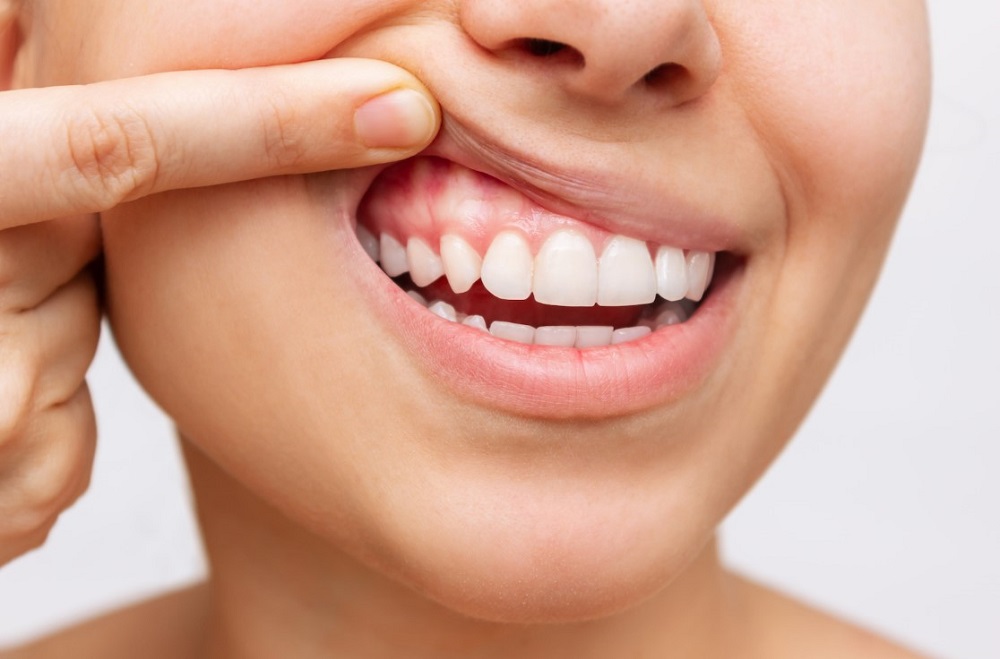When it comes to oral health, we often think of regular dental check-ups, cleanings, and perhaps even dental X-rays. However, there are times when a routine check-up is not enough. When there are abnormalities or concerning symptoms in your gums, your dentist may recommend a gum biopsy.
This procedure can provide valuable insights into potential issues or conditions affecting your gum tissue.
Let’s explore what a gum biopsy is, its types, its purpose, and when and why you might need one.
Table of Contents
What is a Gum Biopsy?
It is a medical procedure that involves the removal and examination of a small piece of gum tissue for diagnostic purposes. This tissue is then studied under a microscope to determine the presence of any abnormalities, diseases, or conditions.
The results can help dentists, oral surgeons, and pathologists make an accurate diagnosis and recommend the appropriate treatment.
What are the Types of Gum Biopsy?
There are various gum biopsy procedures, each suited to different clinical situations. The most common types include:
Incisional Biopsy
In this type of biopsy, a small portion of the affected gum tissue is removed for examination.
It is often used when a dentist or oral surgeon suspects a specific condition or lesion and needs to confirm its nature.
Excisional Biopsy
Unlike an incisional biopsy, an excisional biopsy involves the complete removal of the entire lesion or abnormal tissue.
This is typically done when the size and location of the growth allow for wide excision.
Brush Biopsy
A brush biopsy is a non-invasive procedure that involves gently brushing the affected area to collect cells for analysis.
While less invasive, it may not provide as detailed information as other biopsy types.
Punch Biopsy
In a punch biopsy, a small, round piece of gum tissue is removed using a circular cutting instrument.
This method is often used when a deeper sample is needed for analysis.
Dentist Recommendation: Dr. Malik Ali Hassan Sajid is one of the best dentists in Lahore. He has an experience of nineteen years in the field and can easily treat all kinds of teeth problems.
What is the Purpose of a Gum Biopsy?
Your doctor may recommend gum biopsy for many reasons, including:
Diagnosing Oral Diseases
Gum biopsies are invaluable for diagnosing many oral diseases, such as oral cancer, gingivitis, periodontitis, and other inflammatory conditions.
By examining the gum tissue under a microscope, dentists can determine the type and severity of the disease, which is crucial for developing an appropriate treatment plan.
Identifying Lesions and Abnormalities
Sometimes, unusual growths or lesions on the gums can be due to more severe underlying problems.
A gum biopsy can provide an accurate diagnosis and help determine whether the lesion is benign or malignant, leading to timely and appropriate treatment.
Assessing Infections
Infections in the gums can occur due to various microorganisms, including bacteria, fungi, and viruses.
A gum biopsy can identify the pathogens responsible for the infection, enabling healthcare providers to prescribe targeted treatments and antibiotics.
Suggested Read: Braces Vs. Invisalign – Which is Right for Your Teeth?
When Do You Need a Gum Biopsy and Why?
Let’s explore the situations in which you might need a biopsy and the reasons behind it:
Suspicious Oral Lesions
If you or your dentist notice any suspicious lesions, growths, or abnormalities on your gums, he may recommend you go for a gum biopsy.
These lesions can be an early sign of oral cancer or other severe conditions. Biopsies are crucial for accurate diagnosis and determining the appropriate course of action.
Gum Inflammation
Chronic gum inflammation that doesn’t respond to conventional treatments may require a biopsy to identify the underlying cause.
It can help differentiate between common issues like gingivitis and more severe conditions like periodontitis.
Persistent Pain and Discomfort
If you experience persistent pain, discomfort, or unusual sensations in your gums, it may be a sign of an underlying issue.
A gum biopsy can pinpoint the cause, whether it’s due to an infection, a lesion, or an inflammatory condition.
Gum Bleeding
Unexplained gum bleeding occurring regularly or severely can be due to various gum diseases. A biopsy can help identify the specific disease and guide treatment.
Recurrent Gum Infections
Frequent or recurrent gum infections may necessitate a biopsy to determine the root cause, whether a bacterial, fungal, or viral infection. This information is crucial for selecting the most effective treatment.
Suspicion of Oral Cancer
If your dentist suspects oral cancer based on your symptoms, a gum biopsy can confirm the diagnosis and assess the cancer stage.
Early detection through biopsy is essential for the best possible outcome.
How to Prepare for a Gum Biopsy?
Preparation for a gum biopsy is relatively straightforward and typically involves the following steps:
Consultation
Your dentist will discuss the need for a gum biopsy with you. They will explain the procedure, its purpose, and any potential risks or complications. It is also an opportunity to ask questions and address any concerns.
Medications
Inform your dentist about any medications you are taking, including over-the-counter drugs and supplements.
You may need to temporarily discontinue specific medications to reduce the risk of bleeding or complications during the biopsy.
Fasting
Depending on the type of biopsy and whether you’ll be receiving sedation, your dentist may recommend fasting for a certain period before the procedure.
Follow instructions carefully to avoid potential complications.
Relaxation Techniques
If you’re feeling anxious or nervous about the procedure, consider practicing relaxation techniques such as deep breathing or meditation to help manage your stress.
Visit the Best Dentists in Lahore Via Healthwire!
You can reach out to the best dentists anywhere near you in Pakistan. Just go to Healthwire’s website and book an appointment with a doctor of your choice.
